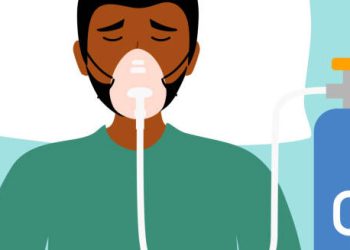Hypoglycaemia happens when blood sugar falls below what the body and brain need to work well. Glucose provides energy, especially for the brain, and its level is controlled by hormones like insulin, glucagon, adrenaline, cortisol, and growth hormone. If this balance breaks—due to too much insulin, not enough food, metabolic problems, or organ failure—blood sugar can drop dangerously low. This section looks at many causes of hypoglycaemia, including those related to diabetes and those that are not. Knowing these causes helps with preventing, spotting early, and treating hypoglycaemia.
Diabetes and Medication-Induced Hypoglycaemia
The most common cause worldwide is medication use in people with diabetes. This includes:
- Insulin injections
- Sulfonylureas (like glibenclamide, glipizide)
- Glinides (like repaglinide)
Blood sugar can fall too low if people:
- Skip or delay meals
- Take too much insulin or medicine
- Exercise more without eating enough carbs
- Drink alcohol, which stops the liver from making glucose
This type of hypoglycaemia can be mild or severe. Nighttime lows or lack of warning signs (hypoglycaemia unawareness) make it more dangerous.
Fasting and Starvation
People without diabetes can also get hypoglycaemia from fasting or not eating enough. The liver’s glycogen stores run out, so blood sugar can’t stay normal. This is common in:
- Children with smaller glycogen stores
- People with eating disorders like anorexia
- Older adults with poor appetite or malnutrition
- People who misuse alcohol, as it blocks glucose production in the liver
The body’s usual response—releasing glucagon and adrenaline—may be weaker, causing a bigger drop in blood sugar.
Alcohol-Induced Hypoglycaemia
Alcohol affects blood sugar by stopping the liver from releasing glucose. This happens especially after drinking a lot on an empty stomach. Alcohol blocks gluconeogenesis, the process the liver uses to make glucose from non-carb sources.
Those at risk include:
- People with diabetes on insulin or pills
- Those with liver disease
- People who binge drink or fast for long times
- People combining alcohol with heavy exercise
Symptoms may appear hours after drinking. Severe cases can cause seizures or passing out during sleep.
Reactive (Postprandial) Hypoglycaemia
This happens when blood sugar drops a few hours after a meal high in carbs. It is caused by an overreaction of insulin that lowers blood sugar too fast.
It can happen in:
- People without diabetes, especially those with insulin resistance or early metabolic syndrome
- Patients after weight-loss surgery like gastric bypass
- People with rare insulin-producing tumors (insulinomas)
Though not usually dangerous, reactive hypoglycaemia causes shakiness, hunger, anxiety, and tiredness. Frequent episodes may reduce life quality and lead to weight gain from constant snacking.
Organ Dysfunction
Some organ problems can cause hypoglycaemia:
- Liver failure lowers glucose production and storage
- Kidney failure slows insulin and medicine clearance, extending their effects
- Adrenal insufficiency (Addison’s disease) lowers cortisol, a hormone that raises blood sugar during stress or fasting
- Pancreatic tumors (insulinomas) release too much insulin, causing frequent or severe lows
In these cases, hypoglycaemia signals a serious health issue. Tests include hormone checks, imaging, and close glucose monitoring.
Hormonal Imbalances and Endocrine Disorders
Hormones control blood sugar tightly. Deficiencies can cause hypoglycaemia, especially in kids. Examples are:
- Growth hormone deficiency, common in children, which reduces glucose production and fat use
- Adrenal insufficiency, which lowers cortisol and increases insulin effects
- Congenital metabolic disorders like glycogen storage disease or hereditary fructose intolerance
Though rare, these conditions require careful testing. Endocrinologists often collaborate with pediatricians to find the cause.
Medication Errors and Overdoses
Mistakes in taking medicine are a big cause of hypoglycaemia, especially among:
- Elderly people on many drugs
- Kids who accidentally take diabetes medicines
- People misusing insulin for weight loss or other reasons
Some non-diabetes drugs can also cause hypoglycaemia, such as:
- Quinine
- Pentamidine
- High-dose aspirin (salicylates)
- ACE inhibitors and beta-blockers (which may hide symptoms)
Intentional overdoses, often linked to self-harm, can cause life-threatening hypoglycaemia needing hospital care.
Conclusion
Hypoglycaemia has many causes—from common diabetes treatment to rare hormone or metabolic issues. Finding the root cause is key to proper treatment and stopping it from happening again. While diabetes-related hypoglycaemia is the most common, doctors should also look for less clear causes, especially if episodes happen often without clear reason.
Knowing the causes helps patients and healthcare workers stay alert, prevent lows, and act fast if symptoms appear. The next section will cover the symptoms of hypoglycaemia and what signs no one should ignore.
Causes of hypoglycaemia vary widely, so understanding them improves prevention and care.


